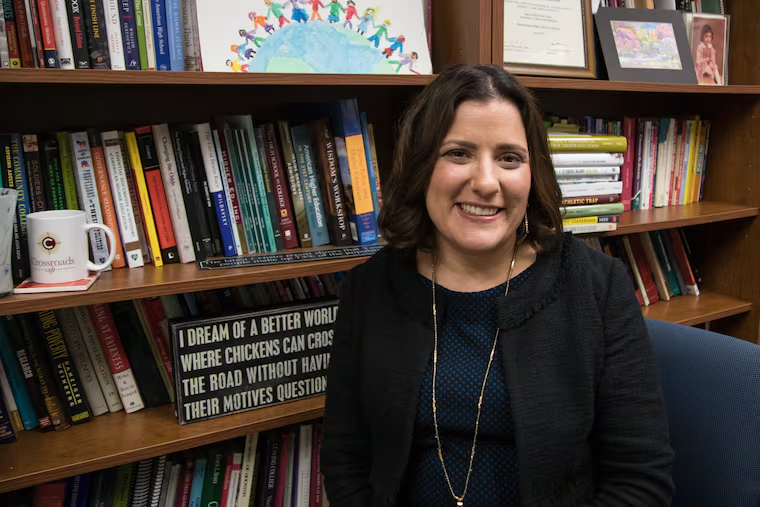Temple prof: Philadelphia must do more to help hungry, homeless college students
As Temple prepares to host its second national conference on hunger and homelessness, Temple professor Sara Goldrick-Rab in a new report suggests ways that Philadelphia can better serve its own students, including starting a citywide emergency fund.

At Temple University, more than a third of students who responded to a survey last year said they did not have consistent and safe access to food or housing, and 7 percent said they were homeless.
At Community College of Philadelphia, the numbers were even higher.
In a report released Thursday, as Temple prepares to host its second national conference on the topic this weekend, professor Sara Goldrick-Rab cites those numbers and said she plans to call on Philadelphia to do more to help its hungry and homeless college students, including establishing a citywide emergency aid fund.
And she wants to help.
"This isn't work that we're looking to pass the buck on," said Goldrick-Rab, an education policy professor who came to Temple in 2016 with a national track record in studying the issue. "It's work we're willing to say we'll do with you. … I'm hoping we'll issue the report and people will tell me they want to come forward and be a part of this."
She plans to host a meeting in November to further the conversation among key city leaders, she said.
Some universities in the city and region, including Temple and CCP, offer food pantries and other supports for students. Rutgers University announced this week that its board of trustees would provide $2 million in tuition-assistance grants, emergency assistance, and financial support to student food pantries at the New Brunswick, Newark, and Camden campuses through 2022.
But Goldrick-Rab said she has found that Philadelphia's "awareness of the problem … is lower than average."
"This is not a visible, well-known, and much-discussed problem," she said. "We offer fewer programs and services than I've seen in similar-size cities."
About 8 percent of Temple's student body responded to the survey asking about hunger and homelessness in 2017, Goldrick-Rab said. The university's results were about the same as other national universities.
At CCP, where the response rate was lower, Goldrick-Rab found that more than half of students who answered the survey were food or housing insecure and nearly one in five were homeless — higher than the national average for community colleges.
A national study co-authored by Goldrick-Rab and released last year found that one of every three community college students in the United States is regularly hungry and 14 percent are homeless.
CCP has been working to address the problem and is planning to assemble a college-wide task force on food insecurity and homelessness, said spokesperson Linda Wallace. Employees also have the option this year of donating funds from their paychecks to support the food pantry, and the college next month plans to start a community garden, with produce to be donated to the food pantry, she said.
Goldrick-Rab acknowledged individual efforts by schools, including CCP, but said more help is needed for students throughout Philadelphia.
"Philadelphia needs a really robust emergency aid fund for any student in the area who is thinking of leaving college," she said.
The report also suggests other initiatives, including allowing students with unused meals to share with others and encouraging public housing authorities to work with colleges to help students who might qualify for subsidized housing.
"There are lots of things that people can do here," Goldrick-Rab said.